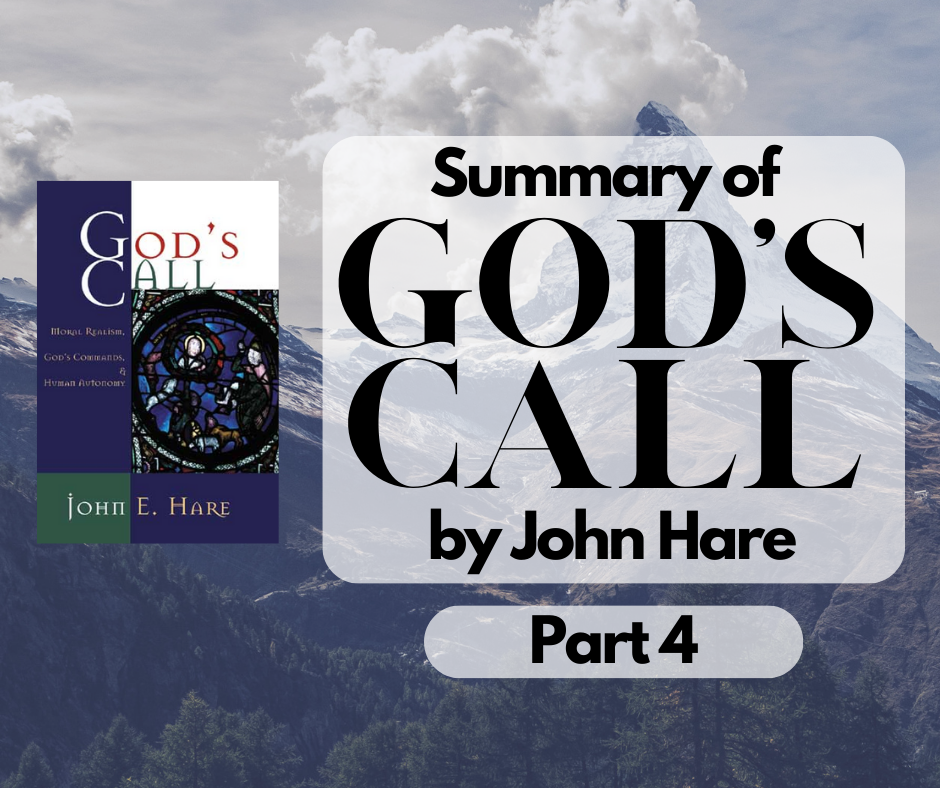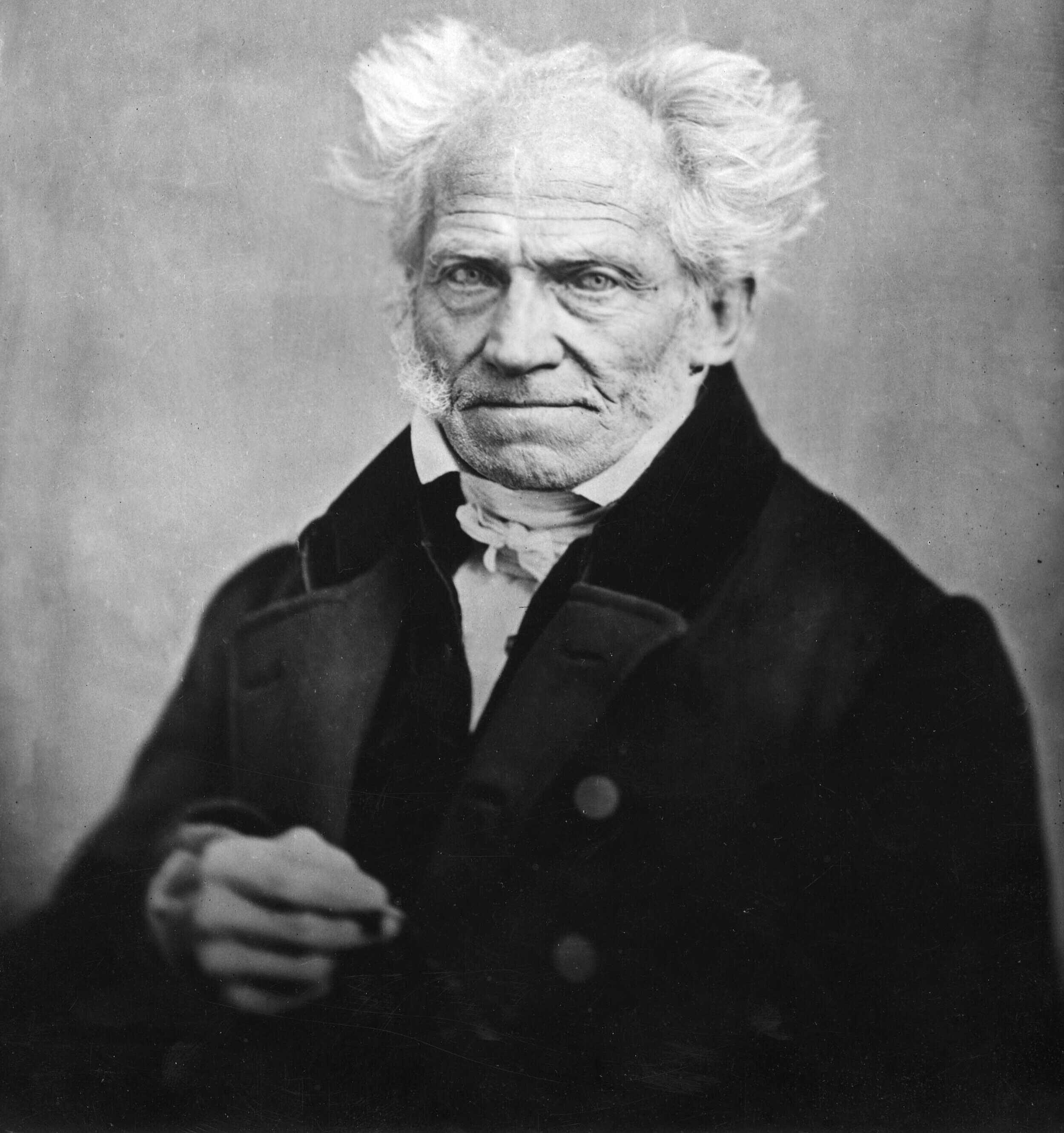Summary of John Hare’s God's Call (Part 4)
/John Hare’s God’s Call: Moral Realism, God’s Commands, & Human Autonomy (Grand Rapids, MI: Eerdmans, 2001): Part IV, Humble Platonism
David Baggett
In this section, Hare discusses the first concession on the realist side: that of Iris Murdoch, a Platonist about ethics who moves some distance from Moore. The concession is that human beings are by nature selfish. Hare calls this “the first realist concession.” It’s a concession to subjectivity in that she recognizes that accurate moral perception needs obedience, a selfless attention, a pure heart, but a root inclination of ours is to favor ourselves unjustly. She is a Platonist about value, but with an Augustinian rather than a Platonist view of the heart.
Murdoch refers to the “fat relentless ego,” which corrupts our nature at its root. It means that our access to the good is always precarious and incomplete, and we are always fatally prone to self-deception. It also motivates her central objection to prescriptivism, which is that if the will is corrupt in this way, then it can’t be the creative source of the good.
She reads Kant in a way with which Hare disagrees. But as she sees it, Kant has abolished God and made man God in His stead. Murdoch sets up a contrast between pride and humility. The existentialists and Anglo-Saxon heirs of Kant (such as Sartre and R. M. Hare in England) make the human will the creator of value, which was previously seen as inscribed in the heavens. Murdoch thinks this is merely a surrender to self-importance.
What we need to recover, she says, is the sense of value as a magnetic source outside our wills, to which our wills respond if we are disciplined in virtue and especially in the virtue of humility. There’s a freedom that comes from humility involving selfless respect for reality. An example for Murdoch, as for Moore, is the contemplation of something beautiful, which can have the effect of “unselfing” the contemplator, so that she attends entirely to the object.
The Good, Murdoch says, unifies our fragmentary experiences of value into a whole that transcends us. It is a “magnetic center,” to which we feel the attraction but which we never reach.
An aspect of Murdoch’s view that’s hard to square with her talk of a “magnetic center” is that she holds that human life has no external point or telos. She thinks Christianity panders to us by claiming to give us a guarantee that the good will in the end prevail. But the effect of her denial is to make the Good completely inert, contrary to Plato, for whom the human world is neither aimless nor self-contained. The Forms for him, and especially the Form of the Good, have a causal role as well as an epistemological one.
Aristotle is not wrong to say that we do naturally pursue such things as power and prestige, but he is wrong to argue that because we naturally pursue them they are good. If we try to argue to the character of the good from the character of our emotions and desires, we are likely to fall into this danger that Murdoch identifies as mistaking the fire for the sun, or mistaking self-scrutiny for the discovery of goodness.
Murdoch says that humans are by nature selfish, and she therefore holds that our evaluative knowledge is precarious and incomplete. For Murdoch, the process of apprehension is one of lifelong obedience, mortification, and self-discipline. The reason this is needed is our tendency to self-indulgence, and the attendant corruption of even our reflective processes by self-gratifying fantasies.
But neither Kant nor the prescriptivists are creative anti-realists in the way Muroch proposes, Hare claims. Prescriptivism, he thinks, is more correctly seen as an additional reason for the humility Murdoch extols. Our evaluations involve the experience of the magnetic force Murdoch describes, and then an endorsement of this response. Recall how Moore distinguished between something cognitive, something noncognitive (like an emotion), and separately from both of these, the judging that a thing is good.
Hare thinks this is essentially right, though he supplements it with Robert Roberts’ account of emotion understood as a concern-based construal, a “seeing-as.” To see something as bad requires caring about what’s at stake. So there’s the seeing-as, the caring, plus the judgment that endorses them. Without the endorsement, emotion is not what Hare calls a full-blooded value judgment.
Returning to Murdoch’s humility, separating the construal, the desire, and the endorsement enables us to see how expressivism can give us an additional reason for humility. Because of our selfishness, the construals and desires present in emotion are biased towards the self. But value judgment according to the expressivist also requires endorsement, and our selfishness will also incline us to endorse what is not impartially good. The central expressivist point is that to make a value judgment is not merely to respond to something out there in the world, but to endorse or deliberately to withhold endorsement from such a response. What we are inclined to endorse will depend on our fundamental reflective loyalties.
Worth noting is that in his review of Hare’s book, Thomas Williams thinks that, though moral realism is a position in moral ontology, Hare’s account of moral expressivism is (potentially) a position in moral semantics, psychology, or epistemology, so they’re not really in the same domain of question. Williams thinks the “concessions” Hare discusses involve further confusion between questions of different types. So the whole framework of the discussion, Williams argues, is vitiated from the outset by Hare’s failure to keep distinct kinds of question separate. And, inevitably, the story of the particular “concessions” that each side is said to have made to the other involves further confusion between questions of different types.
One such confusion, Williams thinks, can be seen in Hare’s discussion of this “first realist concession”: Iris Murdoch's concession that human beings are by nature selfish. Contra Hare, Williams asserts that it is no more a concession to subjectivity about morals to say that our moral perception might be obscured by perverse desire than it is a concession to subjectivity about astronomy to say that our perception of the moon might be obscured by clouds. The ontological question is one thing; the epistemological question is quite another.
I suppose I read Hare’s concessive point as an effort to texture the discussion by pointing to elements of both ontology and epistemology, all of which are needed for a more robust analysis. Likewise in Hare’s problematizing of Murdoch’s reading of prescriptivism and Kant.












